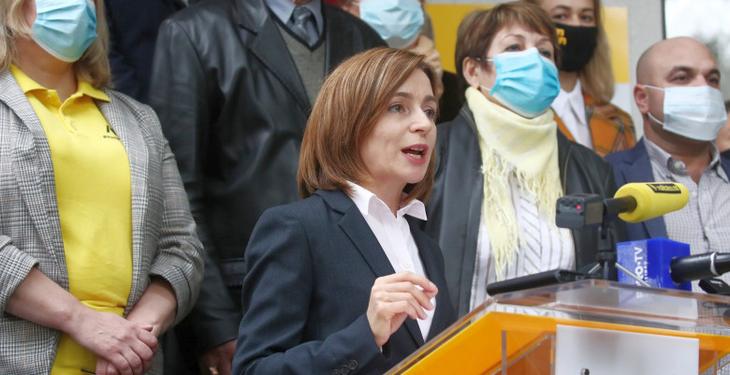Maia Sandu, the leader of the pro-European party Action and Solidarity Party (PAS) won the first round of the presidential elections held on Sunday in the Republic of Moldova, with an advance of over 3 percentage points over the incumbent president, Igor Dodon. After counting the votes registered in 99.53% of the polling stations, Maia Sandu obtained 42 thousand more votes (482,087, vs 439,640).
Exit-polls conducted during the day by phone because of the restrictions posed by the Covid-19 pandemic, indicated a comfortable victory for Igor Dodon (40.9%), ahead of Maia Sandu (34.6%). The difference was made by the consistent vote of the Western diaspora, whose preferences were overwhelmingly directed towards the leader of PA). More than 142 thousand people voted outside the Republic of Moldova, i.e. about 10% of the votes registered in the constituencies in the country.
Igor Dodon remains the favorite to win the second round, given that he can hope to attract about 9 percentage points of voters, those who voted for Violeta Ivanov (Șor Party) and at least in part the votes obtained by Renato Usatîi (17%). It is not clear who the latter will support in the second round, nor how disciplined his supporters will be; considered an anti-system candidate, he launched attacks on Igor Dodon even after Sunday’s vote ended.
Another factor that is difficult to anticipate is the number and share of voters in the Western diaspora who will go to the polls in the second round. Probably numerous, they represent the only additional votes that Maia Sandu can bet on, given that the other pro-European parties have registered very low scores, through their candidates: Andrei Năstase, Platforma DA (2.9%), Octavian Țîcu , PUN (1.7%) and Dorin Chirtoacă, Unirea electoral bloc (1.3%).
Finally, it is also unclear how the institutions relevant to the elections will behave in the Republic of Moldova, where there is a history of their involvement with direct effects on the results of previous elections. The Chisinau court canceled the early local elections in the country’s capital in June 2018, only that a year and four months later, the Chisinau Court of Appeal to declare them legal.
